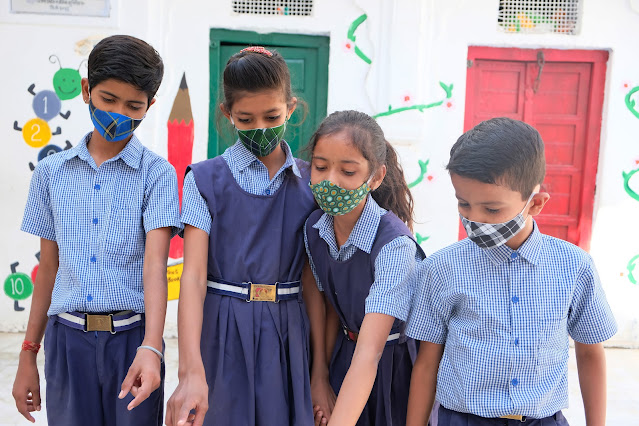The impact of technology on CBSE schools
In today's digital age, technology has
become an integral part of education, revolutionizing the way students learn
and teachers instruct. CBSE (Central Board of Secondary Education) schools,
known for their commitment to quality education, have embraced technology to
enhance the learning experience. Millennium World School recognize the profound
impact of technology on education. In this blog post, we'll explore the
transformative role of technology in CBSE schools, highlighting how it has
elevated the educational landscape and enriched the teaching and learning
processes.
Enhancing Access to Information
The integration of technology in CBSE schools has opened up a world of information for students. With access to the
internet and digital libraries, students can explore a wealth of resources beyond
their textbooks. This not only broadens their knowledge but also encourages
independent research and critical thinking.
Technology has made learning more
accessible to students with diverse needs. It enables personalized learning
experiences, catering to individual learning styles and paces. Educational
software and platforms can adapt to students' abilities, providing extra
support where needed and challenging those who excel.
Interactive Learning
Interactive whiteboards, tablets, and
multimedia presentations have transformed traditional classrooms into dynamic
and engaging learning environments. CBSE schools leverage interactive
technology to make lessons come alive. Visual aids, animations, and interactive
quizzes captivate students' attention, making learning more enjoyable and
effective.
Technology encourages collaborative
learning. Students can work together on projects, share ideas, and engage in
real-time discussions, even if they are physically apart. This collaborative
approach fosters teamwork and prepares students for the collaborative nature of
the modern workforce.
Empowering Educators
Technology equips educators with powerful
tools to enhance their teaching methods. Teachers can access digital lesson
plans, resources, and teaching aids that facilitate effective classroom
management. Digital assessments streamline grading and provide instant feedback
to students, helping them track their progress.
Professional development for teachers has
also been greatly enhanced through technology. Online courses, webinars, and
educational forums enable teachers to stay updated with the latest pedagogical
practices and subject knowledge.
Expanding Horizons with E-Learning
CBSE schools have embraced e-learning as a
means to transcend geographical boundaries and offer quality education to a
broader audience. E-learning platforms allow students to access coursework and
lectures remotely, providing flexibility and convenience. This approach has
proven invaluable during times of unforeseen disruptions, such as the COVID-19
pandemic.
E-learning fosters self-discipline and time
management skills, as students have more control over their learning schedules.
It encourages lifelong learning, as individuals can continue their education
while pursuing other commitments.
Bridging Gaps in Education
Technology has been a great equalizer in
education, bridging gaps in access to quality resources. CBSE schools can reach
students in remote areas who may not have had access to a high-quality
education otherwise. This inclusivity aligns with the principles of the CBSE
board, which strives to provide equitable educational opportunities.
Moreover, technology has made education
more inclusive for students with disabilities. Assistive technologies, such as
screen readers and voice recognition software, enable students with special
needs to participate fully in the learning process.
Preparing for the Future
CBSE schools are committed to preparing
students for the challenges and opportunities of the future. Technology
literacy is no longer optional; it's essential. By integrating technology into
the curriculum, CBSE schools ensure that students are not only proficient in
using technology but also understand its ethical and responsible use.
Conclusion
The impact of technology on CBSE schools
cannot be overstated. It has revolutionized the way students learn, educators
teach, and schools operate. At Millennium World School in North Bangalore, we
are proud to be at the forefront of this educational transformation. We believe
that technology is not just a tool; it's an enabler of limitless possibilities.
As we move forward, we remain committed to
leveraging technology to provide the best possible education to our students.
We encourage parents and students to embrace this digital journey with us,
knowing that it will prepare our students for a future filled with innovation,
collaboration, and endless opportunities.
Join us at Millennium World School as we harness the transformative power of technology to shape the leaders and thinkers of tomorrow. Together, let's embrace the digital age and make education a dynamic and enriching experience for all.

Comments
Post a Comment